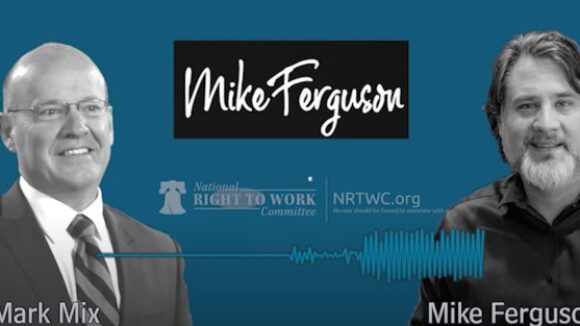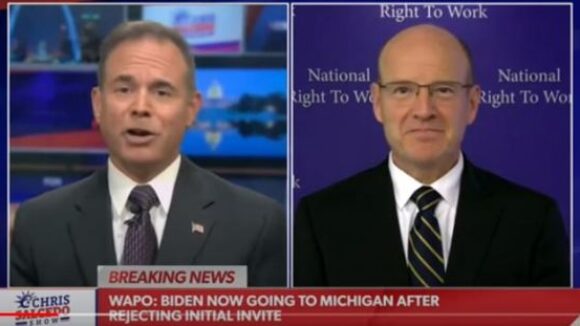Mark Mix discusses the Fallout from the UAW Strike and Big Labor $$$ on St. Louis’s Newstalk
Mark Mix Discusses the Fallout from the UAW Strike on St. Louis’s Newstalk with Mike Ferguson.
Immediately after electing a new governor, Big Labor set its sight on Colorado to rig the law to favor union organizing, forced dues and agitation over job creation and production. The union bosses were shocked when Gov. Bill Ritter (D), their golden boy, vetoed a major piece of this agenda earlier this year. But now Ritter appears to be making amends — big time.
State rules give state employees the right “to associate, self-organize, and designate representatives of their choice.” And it permits union representatives to “confer, with prior consent from the supervisor, on employment matters during work hours. Such conferences should be scheduled to minimize disruption to productivity and the general work environment.” But that isn’t good enough for the union bosses.
New guidelines, put forth by Colorado Department of Personnel and Administration Director Rich Gonzales, would have required the state to provide “employee organization” (i.e. union activists) with e-mail addresses of all employees, use of state mailrooms and space to hold meetings. The Rocky Mountain News opines that:
. . . Gonzales drafted rules defining “reasonable access” for “talking to and distributing literature to employees” (a euphemism for union organizing) to include a wide array of common areas including main entrances and exits, cafeterias, break rooms, parking lots, and outdoor walkways at virtually all state facilities.
Not only that, unions are given the explicit right to reserve conference or meeting rooms within state facilities, as well as use both the state’s centralized mail distribution system to communicate with state employees and all internal mail systems within departments.
Finally, unions can use the state’s e-mail system to conduct organizing drives and otherwise communicate with state employees, subject to certain limitations such as volume e-mails (no more than three per month during work hours, which officially do not, surprisingly, include noon to 1 p.m.).
. . .
It is naive to think that volume e-mails dealing with union organizing will not disrupt normal work performance, regardless of when they are sent. Campaign material is inherently a discussion-provoking distraction. Moreover, the possibility of the pervasive presence of union organizers allowed by such broad mandatory access to state workplaces is likely to create at least an irritating and distracting environment for many workers, if not worse.
A small fraction of Colorado’s 74,000 state workers are unionized; the single largest bargaining representation covers about 4,000 members. So it’s easy to see why Colorado labor leaders are so enthusiastic in their defense of the generous assistance being offered by the Ritter administration.
The new policy on “employee organization access” as currently crafted is unnecessary at best. At worst, it is the payback to organized labor that Republicans have characterized it to be.
Some legislators have characterized the move as the creation of a forced-unionism paradise. But we know it’s the beginning of a worker’s nightmare should the policy be implemented.

Mark Mix Discusses the Fallout from the UAW Strike on St. Louis’s Newstalk with Mike Ferguson.

Union boss Shawn Fain claims to oppose “corporate welfare,” but isn’t hesitant to personally benefit from it. (Credit: Status Coup News…

National Right To Work President Mark Mix appeared on Newmax’s Chris Salcedo Show to discuss the ongoing UAW Strike and It’s Potential Impact on the Economy.